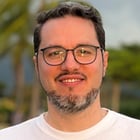Channel Estimation for Beyond Diagonal RIS via Tensor Decomposition

About this Topic:
Beyond Diagonal (BD) RIS has recently been proposed and proven theoretically to enhance channel gain and coverage. The performance of BD-RIS architectures and modes depends heavily on the accuracy of the channel state information. However, the conventional least squares (LS) estimator requires significant training and disregards the built-in block Kronecker structure of the composite channel. In this talk, the presenter links the channel estimation problem for BD-RIS to a tensor decomposition problem. Specifically, he will demonstrate that the received pilot signals can be organized as a three-way (3D) array or a third-order tensor that follows a block Tucker decomposition model. First, he discusses how the specific BD-RIS architecture affects the resulting tensor decomposition structure. Next, he demonstrates how interpreting the received pilot signals as a three-way tensor allows us to reformulate the cascaded channel estimation problem as a block-Tucker tensor decomposition problem. This yields decoupled estimates for the involved channel matrices, substantially improving performance over the matrix-based LS method. He discusses two algorithms to solve this problem. The first is a closed-form solution that extracts channel estimates via block-Tucker Kronecker factorization (BTKF). This boils down to solving a set of parallel rank-one matrix approximation problems. The second algorithm is based on a block-Tucker alternating least squares (BTALS) method that directly estimates the channel matrices using an iterative procedure. He highlights the trade-offs of the BTKF and BTALS methods. BTKF offers fast, parallel extraction of channel estimates in closed form, while BTALS provides a more flexible training design that reduces training overhead significantly compared to state-of-the-art methods.
About the Presenter:
André L. F. de Almeida (M’08, SM’13) received the double Ph.D. degree in sciences and teleinformatics engineering from the University of Nice Sophia Antipolis, France, and the Federal University of Ceará, Fortaleza, Brazil, in 2007.
He is a professor in the Department of Teleinformatics Engineering at the Federal University of Ceará in Brazil. He has been awarded multiple visiting professor positions at the University of Nice Sophia Antipolis in France (2012–2013, 2018–2019, and 2022–2024). His research interests include signal processing for communications, sensor array and multichannel processing, multilinear algebra, and wireless communications. A significant portion of his research has focused on tensor decompositions with applications to wireless communication systems. He has published over 300 papers in journals and at conferences, six book chapters, and is a co-inventor of seven international patents.
Dr. de Almeida currently serves as a Senior Area Editor for the IEEE Transactions on Signal Processing and a Senior Area Editor for the IEEE Signal Processing Letters. He is an elected member of the IEEE Signal Processing Society (SPS) Signal Processing Theory and Methods (SPTM) Technical Committee (2022–2024) and of the EURASIP Signal Processing for Multi-Sensor Systems Technical Area Committee (SPMuS TAC) (2016–2018 and 2019–2022). He currently serves as the Chair of the SPMuS TAC. He has also served as an associate editor for several journals, including the IEEE Transactions on Signal Processing (2012–2016), IEEE Signal Processing Letters (2016–2020), and IEEE Transactions on Vehicular Technology (2020–2022). From 2022 to 2023, he served as the IEEE SPS Director-at-Large for Regions 7 and 9. In January 2025, he was appointed Chief Editor of the IEEE SPS SigPort (2025–2027). He was the general co-chair of the IEEE CAMSAP'2017 workshop; technical co-chair of the IEEE GlobalSIP'2018 and IEEE GlobalSIP'2019 symposia on tensor methods for signal processing and machine learning; technical co-chair of the IEEE SAM'2020 workshop; and general co-chair of the IEEE CAMSAP'2023 workshop. He is a co-recipient of the 2018 IET Communications Premium Best Paper Award (2018) and a co-recipient of the 2022 IET Signal Processing Premium Best Paper Award (2022). He also received the Best Paper Award at the 19th IEEE International Conference on OFDM and Frequency Domain Techniques in 2016, the WCNPS'2022 Best Paper Award. In 2018, he was elected a member of the Brazilian Academy of Sciences.
Want to learn more about upcoming events & webinars?
Visit the events section of the Signal Processing website to see all upcoming lectures, workshops, webinars, and more.
